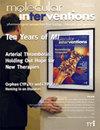Introduction: Counter-stories from the Arctic Contact Zone
引用次数: 0
Abstract
This special issue of Interventions presents essays from twelve scholars from the field of Arctic Humanities that collect, contextualize, and theorize micro-histories of encounters between Arctic Indigenous people or Arctic animals and European, Russian, and North American agents of empire in the long nineteenth century. In bringing out from Arctic archives Indigenous agencies, voices and aesthetic productions, animal presences and fates, the essays collected here contribute to ongoing academic efforts to decolonize knowledge on the region. This, in our case, means to (1) document the impact Euro-American and Russian imperialism had on human and animal life in the Arctic region; (2) foreground the knowledge, creative expressions, experience, resilience, and resistance of Indigenous individuals, peoples, and communities; and (3) expose the illusions of modern progress narratives (scientific, material, moral) that accompanied colonial ventures in the Arctic region. The Introduction to this special issue on “Counter-stories from the Arctic Contact Zone” presents a broad overview of the history of colonization in the areas of the Arctic (today’s Canada, Inuit Nunangat, Alaska, Kalaallit Nunaat [Greenland], Svalbard and Sápmi) that the essays address. It then sets the methodological framework for the essays through a discussion of postcolonial theory concerned with the politics of knowledge production and the possibilities and challenges of contrapuntal re-readings of the cultural archive. Central here is a discussion of how Mary Louise Pratt’s concept of the contact zone aids the discovery and documentation of counter-narratives that challenge and disrupt the colonialist meta-narratives that then supported empire and today continue to impact how dominant, capitalist cultures relate to, exploit, and extract from the Arctic region and its peoples.简介:来自北极接触区的反故事
本期《干预》特刊收录了来自北极人文学科领域的12位学者的论文,这些论文收集、背景化和理论化了北极土著居民或北极动物与欧洲、俄罗斯和北美帝国代理人在漫长的19世纪遭遇的微观历史。通过从北极档案中取出土著机构、声音和美学作品、动物的存在和命运,这里收集的文章有助于不断进行的学术努力,以了解该地区的非殖民化知识。在我们的案例中,这意味着(1)记录欧美和俄罗斯帝国主义对北极地区人类和动物生活的影响;(2)突出土著个人、民族和社区的知识、创造性表达、经验、复原力和抵抗力;(3)揭露伴随北极地区殖民冒险而来的现代进步叙事(科学、物质和道德)的幻想。本期“北极接触区的反面故事”特刊的导言部分,对文章所涉及的北极地区(今天的加拿大、因纽特努南加特、阿拉斯加、卡拉瓦利特努纳特[格陵兰]、斯瓦尔巴群岛和Sápmi)的殖民历史进行了广泛的概述。然后,通过对后殖民理论与知识生产政治的讨论,以及对文化档案的对位重读的可能性和挑战,为论文设置了方法论框架。这里的核心是讨论玛丽·路易斯·普拉特的接触区概念如何帮助发现和记录反叙事,这些反叙事挑战和破坏了殖民主义的元叙事,这些元叙事当时支持帝国,今天继续影响着占主导地位的资本主义文化如何与北极地区及其人民联系、剥削和榨取。
本文章由计算机程序翻译,如有差异,请以英文原文为准。
求助全文
约1分钟内获得全文
求助全文

 求助内容:
求助内容: 应助结果提醒方式:
应助结果提醒方式:


